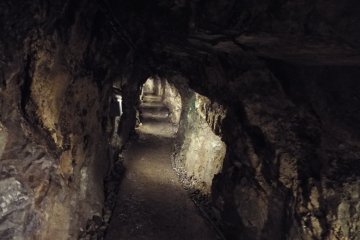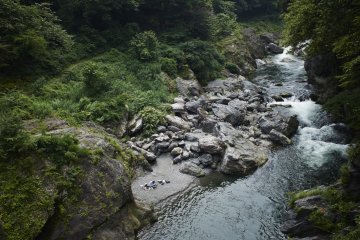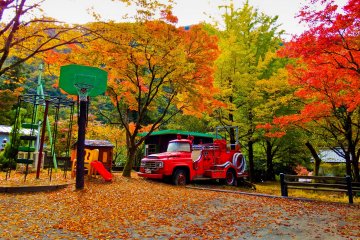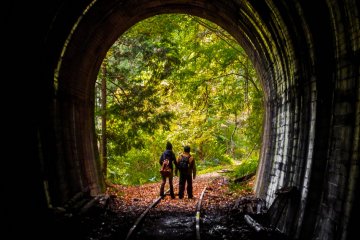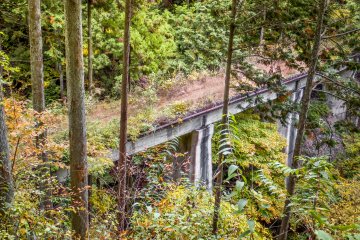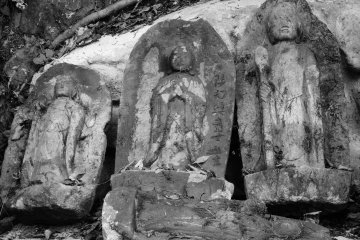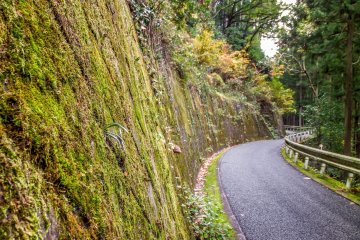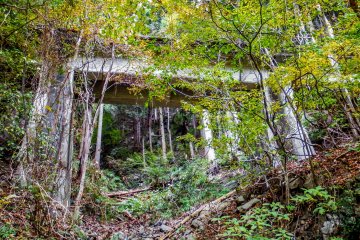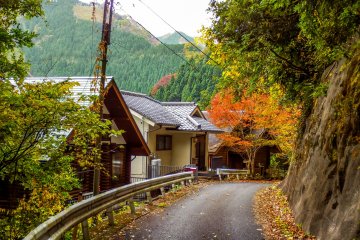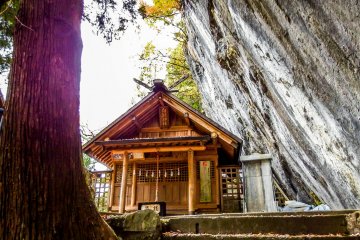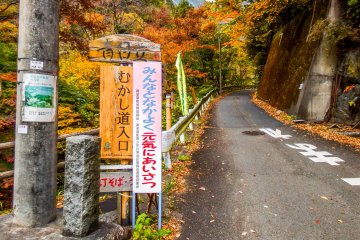Originally built as a community road in 1899, the Mukashi Michi played a major role in enabling the movement of vital provisions for local residents. During its heyday, this 10 kilometer stretch of mountainous road became a major transportation hub where several tea houses and lodges were opened to accommodate tired travelers along with water vassals to feed their thirsty horses.
Unfortunately, the construction of a new road in 1945 signaled the demise of the Mukashi-Michi, resulting in the closure of these once bustling tea houses along with everything else along this stretch of mountainous road.
Although now consigned to the history books the Mukashi-Michi still retains many of its original structures, providing a great insight into Japanese rural life at the turn of the 20th century.
The course
Starting from the center of Okutama Town, this excellent walk stretches for almost 10 kilometers, passing by many pastoral villages before ending at Lake Okutama. Whilst this walk takes about four hours to complete, most of the trail traverses along a flat asphalt road and boasts many impressive sights including an abandoned railway line, two scary looking suspension bridges, and of course... many breathtaking views!
Access
Located directly outside Okutama Station is the super friendly tourist information center which provides free maps and bus timetables where the trail head is a short walk away. From Lake Okutama (the end point), regular buses make the 30 minute journey back to Okutama station with single fares costing 400 yen.
The hike
Once outside the station turn right and follow the main road, crossing over a large bridge before a large map (the trail head), will appear on your right several meters later.
Following the Mukashi-Michi signs (むかしみち), the trail will now ascend up a steep slope before entering a forest. Almost immediately, you will come across some disused rail tracks along with a defunct tunnel. Although it is possible to enter this tunnel, be aware of dripping water!
A few meters away from here is another disused tunnel along with a railway bridge overgrown with vegetation. This defunct railway line runs parallel to the walking trail for the first couple of kilometers making an interesting sight when observing the abandoned structures scattered across the valleys above and below.
Close to this point you will also see some small religious monuments, former tea houses, and several dilapidated staircases. As the road twists around the valleys like a curling snake, you will encounter the odd residential area before the road winds around and disappears into more dense forest once again.
The halfway point
Just when it feels like civilization is a distant memory, the forest will suddenly open up, revealing a long road below which runs parallel to the mighty Tama River. Whilst this is an impressive sight on any occasion, the rich autumn foliage adds even more vibrancy to the landscape.
After admiring the best of Mother Nature, the road will enter another stretch of forest which will pass the impressive Shirahige Shrine whose symbol of worship is a huge 30 meter rock.
For the next few hours the trail will continue along a leaf covered road passing by Shidakura and Dodokoro suspension bridges. Standing at over 30 meters in height these bridges provide a stunning, if somewhat scary view over the Tama River.
If the excitement of crossing two bridges in one day is a little overbearing then fear not as the Yasumi Dokoro, (rest area) is a short walk away providing a good pit stop along with your first view of Lake Okutama in the distance.
Towards Lake Okutama
During the last hour of this walk the trail will leave this road and ascend up a narrow mountain pass offering several glimpses of your ultimate target; Lake Okutama. As this trail begins to descend down a forest path, you will see some small religious statues before reaching a large clearing with a main road running by. Lake Okutama is now only a few minutes away!
With autumn`s short daylight hours beginning to fade, I finally reached Oguchi Dam; the giant man-made structure that is responsible for creating Lake Okutama. Having accomplished this long but rewarding walk, I waited outside the Mizu-no-Midori no Furikan (water museum), for the bus back to Okutama Station.
As the bus negotiated its way around the long and winding mountain valleys, I reflected on the day’s hike which not only provided many great sights but more importantly, an interactive account of a time gone by in history. For anyone who visits the Mukashi Michi, this is one place guaranteed to stay in your memory for years to come!



